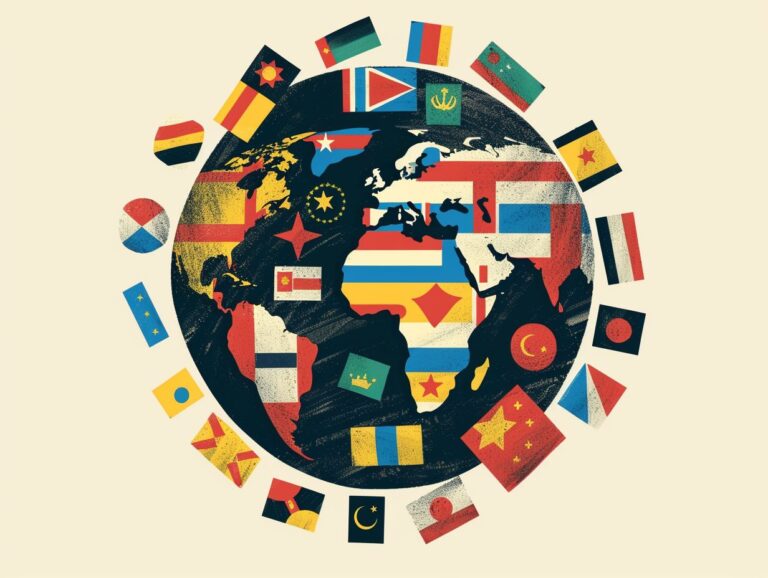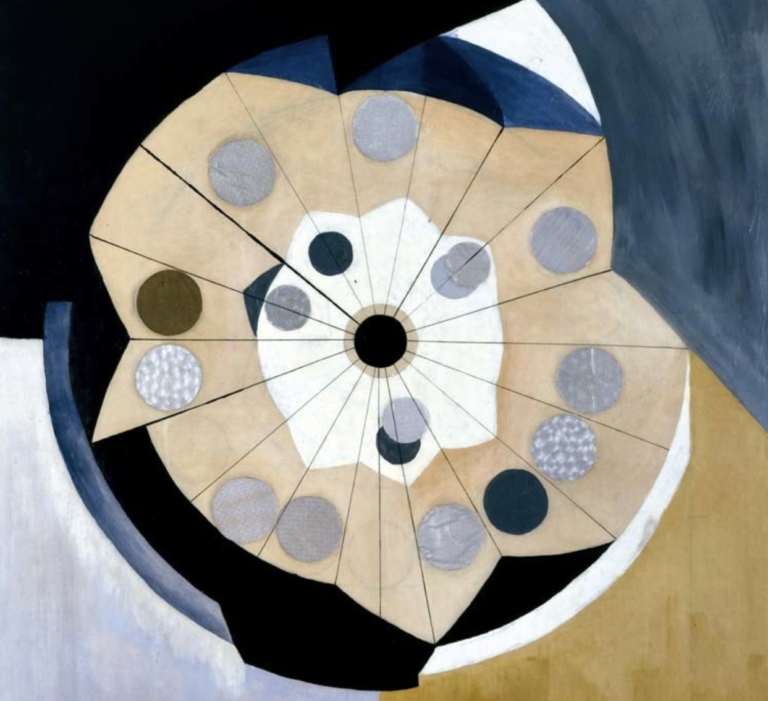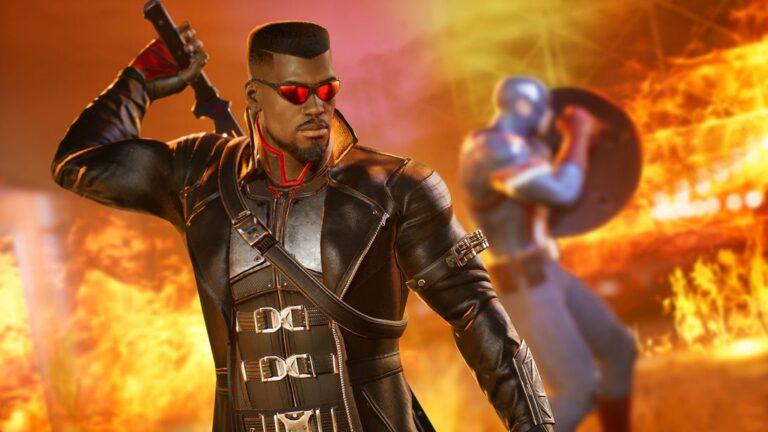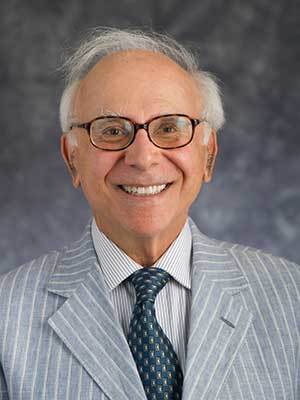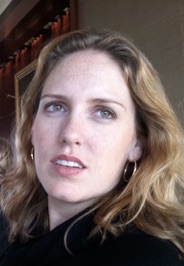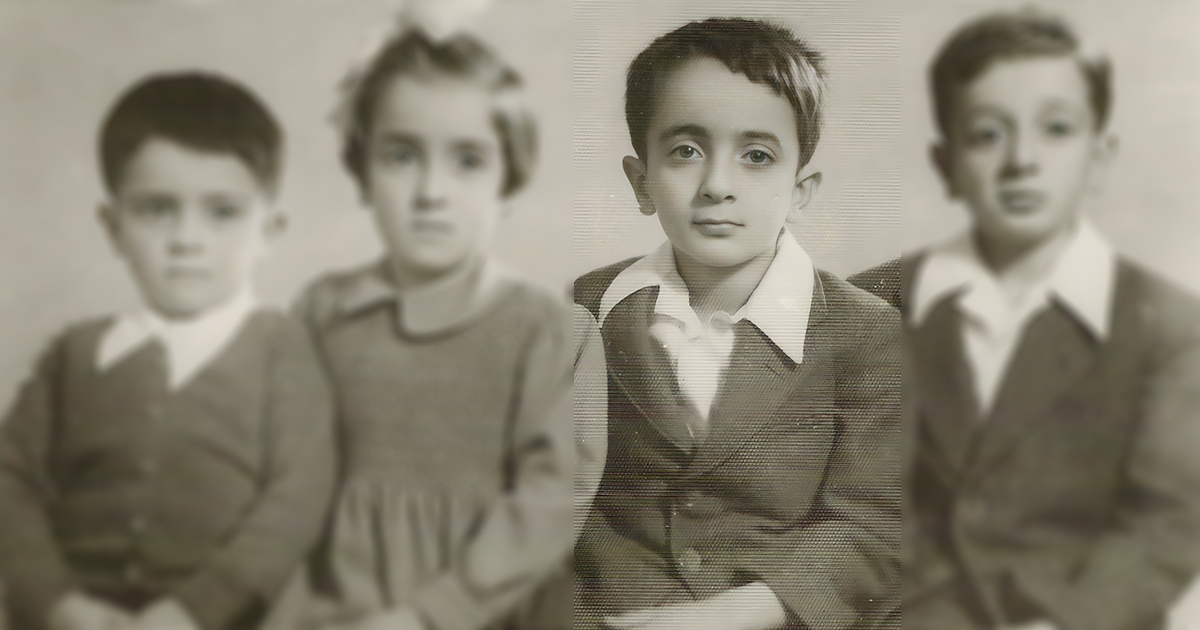
Any day.I would like to address this existential question and the angst it presents. (I feel a little bit of that angst looming in the air, commingling with the heat.)So, to conclude: I wish you all so much luck, so much fierceness, as you take flight tomorrow. And the next day. And the next.At the heart of Jad’s singularly personal story — which is also the universal story — is a reminder that these accidents of chance render the choices we make with our lives all the more meaningful, all the more urgent: a sort of cosmic duty to recompense the universe for the unbidden gift of our lives as we ourselves come to bead the rosary of the future.Point is, like that young boy in 1915, circumstances have left you with not a whole lot choice but to put one foot in front of the other and walk into whatever is next. And if I have any wisdom to offer you, it’s this:This is a happy moment — not a sad moment! But it is one of those moments where everything is about to change for you. Where the future is more unknowable and unconquerable than you can possibly fathom. And I don’t mean this in a generic sense: It seems to me that it’s your generation’s particular inheritance to be faced with things that are too big, too much, too overwhelming. The planet is on fire — my generation has failed you in that regard. Democracies are on fire. There’s a plague of misinformation — again, we’ve let you down. Oh, there’s an actual plague — not sure what we could have done about that, but we probably let you down there, too.That feeling right there, of the air and the pressure? That is the feeling of all it about to be behind you. It’s the feeling of you, on the brink, about to cross over.It’s a little humbling, that thought. But I find there’s also a comfort in this way of thinking, in that it’s not just up to you.Jad has kindly shared with me the transcript, along with a wondrous private portal of time travel through the family photo album, folded into which — as into any personal history — is a fragment of world-history bridging epochs, cultures, and interwoven fates.
And one of the wonderful things about my grandfather’s story, to me — and the reason I offer it to you — is that you do not know how the story will end. My grandfather could not have fathomed a world where people download packages of audio data called podcasts through the air onto things called smartphones, and that someone could possibly make a living doing this. If he were here next to me right now, think of all of the things I would have to explain to him for that last sentence to make sense to him. And yet, he helped create it all.
Think about that: A new butterfly takes flight from a eucalyptus tree in Vancouver. By the time the butterflies get here, to Los Angeles, that mother butterfly is gone, her child is gone, and her child’s child is now doing the flying. By the time they make it to Mexico, it’s the child’s child’s child.
I brought two pictures with me to help: I brought a picture of my grandfather — you can’t see this, but just imagine me but with an Arab Man Mustache, sepia — and I brought a picture of a monarch butterfly. I bring them as offerings to you, as spirit-guides on your journey.
Commence again.
All of us old people up here — myself included — are counting on you. But we’re also with flying you. You know, looking back on my early twenties, I remember feeling that my story was singularly mine to write. I now see I’m part of a larger flow. And stepping up here, to this podium, I said to myself, C’mon, grandpa. It’s time.
And they made this trip once a week, every week, on foot: thirty-five miles one way, thirty-five miles back.
When I was first asked to deliver the commencement address, I was a little scared. I didn’t think I was up to it. You all are about to graduate from one of the top colleges the country. You’ve already weathered a singularly difficult moment in human history: What could I possibly say to you, as you stand on the brink, that resembles wisdom?
In 1915, my grandfather was about ten. He lived in a village called Waidi Shahrour, which is in the mountains of Lebanon. It’s just him and his two brothers and his mom. His dad — my great-grandpa — had gone off to Brazil to find some work. But then he’d gotten trapped there, because this was WWI and the entire country was blockaded — you had the Allied Forces (let’s call them) on one side, and then the Germans on the other — and nothing or no one was allowed in or out. So the entire country was starving. It’s a pretty small country — 400,000 people. 200,000 had died. This is now referred to as the Great Famine of Mount Lebanon.
Because the true beginning of our lives is obscured behind the horizon of conscious memory and swaddled in complete lack of agency, different cultures and civilizations have designated various points along the path as the proper beginning of independent life — none more momentous, in this particular culture, than the point at which we leave the safety of the family cocoon and the structure educational system, and leap into the open sky of independence (itself a notion that is, as the pandemic has rudely reminded us, another delusion of our species). To embolden the leap, our culture has devised one particularly beloved packet of instructions: the commencement address.
And here I’ll quote the final words of the science fiction series The Expanse:
Well, one day, on the return leg of one of these journeys, my great-grandma — my grandpa’s mom — stops, clutches her chest, falls over, and dies. So there’s my grandfather — a ten-year-old boy — staring into a void.
All of it — call it to mind.
And as graduates of Caltech, you are in a position, more than most, to know the awesome gravity of the void you are walking into. The gift, and the curse, of the scientific mind is to know that every time we presume to see the whole of something, the plane of reality will tilt to reveal new mysteries — here I’m quoting from a writer friend, Maria Popova — and when reality does that tilt, we’re always “staggered with the sudden sense that we had been looking at only a fragment. The history of our species is the history of learning and forgetting and relearning this elemental truth.”
Jad begins the address with a short guided meditation into presence — the single bead of being we ever touch directly. I find in it a poignant meta-testament to why a great commencement address is such a powerful gift for any life-stage — not only the outset of adulthood: A kernel of all meditation traditions is the idea that, whenever you find yourself hijacked by thought and distracted by story during meditation, you can “begin again.” It is what saves a practice. It is also, when applied to the practice of living, what can save a life.
There are times when I’m walking down the street in New York, just feeling the force of the earth on my feet, and the sheer improbability of this chain of events stops me in my tracks: None of this had to be. I was not inevitable. You are all not inevitable. You did not have to be here. I certainly didn’t have to be there, because I wouldn’t even exist, were it not for a ten-year-old boy who had to bury his mother on the side of the road.
I imagine some of you are already terrified of this. If you’re not, I bow to you, but perhaps in a few months, when it’s time to go back to college and you realize, Oh damn, there’s no college to go back to. There’s just life — the string of days that is my life, one after another, until I die.
Now, he would eventually have a moment to actually process this — when he was seventy, he’d return to that spot on the side of the road and weep for an hour — but, at the time, he just kept walking.
Now, eyes still closed, feel the air around you — that very particular stultifyingly hot Southern California air — on your cheeks; feel the heat building up between your head and your cap; feel the pressure of the chair on your butt.
Do me a favor: Close your eyes for a second. Call into your consciousness a fast-cutting montage of the 120 million seconds of your educational experience that have led you to this moment. Bring it into your mind:
You all know this. You’re the ones who have the clearest sense that there is so much we do not know. But as graduates of Caltech, you are also the ones with the greatest ability to see possibility in that void. To walk into it and discover and create and build the unimaginable.
I imagine him looking at his mom, his two brothers, and the carts full of grains and dried milk that still had to be traded or else they’d starve. And he just knew. Somewhere inside of him, there was now a deep understanding. The tectonic plates of him had realigned.
The pandemic waves. The gut-wrenching reckonings. The friendships. The papers. The Zooms. The masks. The readings. The labs.
He was ten.
A beginning is a singular kind of freedom — a vector reaching toward a nebulous infinity of possible endings, yet bound to spear only one; a vector haunted by the knowledge that every littlest step taken along it takes us one way and not another, even the steps we don’t realize we are taking — which, in a reality governed primarily by chance, are most steps. And as James Baldwin — who uniquely understood our delusions about chance and choice — bellows down the hallway of time to remind us, “nothing is more unbearable, once one has it, than freedom.”
So: Let’s do this, butterflies. Let’s change the future.
Because here we are.
He’s up here with me. The whole village is up here with me. And all of us, we fly with you tomorrow — a human kaleidoscope.
Why am I telling you this?
So: My grandfather is a little boy, as I said. And his mom — my great-grandma — has to feed the family. So she decides on this plan, where every week, she, my grandpa, and his two brothers would get produce from their village, and they’d pack it into carts, and they’d walk up and over thirty-five miles of snow-covered mountain, and back down to where the Germans were stationed, and then they would sell their produce to the German army, and in exchange get wheat and flour and dried milk and other things, which they’d pack into carts, drag thirty-five miles the other direction, up and over the mountains, back near their village, where the Allied soldiers were stationed, and then they’d trade that stuff with them.
OK, let’s take stock: It’s 10:28 AM, June 10, 2022.
From Radiolab creator, composer, and all-around golden human Jad Abumrad comes an especially fine addition to the finest of the genre: his address to the graduating Caltech class of 2022 — a gorgeous meditation on the Rube Goldberg machine of accidents that make each and every existence possible: that rosary of randomness leading to any one life, beaded with chance events stretching all the way to the Big Bang (and possibly beyond it), of which we can only ever glimpse a handful of beads on the nano-scale of a few human generations in our ancestry.
It is unsettling, to see yourself as just one particle in a stream. One butterfly in a kaleidoscope. (Did you know that groups of butterflies are called a kaleidoscope? Isn’t that cool? I didn’t know this until, uh, yesterday?)
What the hell do you do in that moment?
Preparing for this commencement, I learned a startling fact: The monarch butterflies that you sometimes see here in Los Angeles, they migrate about 3,000 miles from Vancouver Canada to Michoacán Mexico — that we knew. What I didn’t know was that each leg of that journey takes the monarchs three to four generations. (Apparently, researchers just learned this.) Three to four generations, each way.
And that’s how they survived: They traded supplies between the enemies that occupied their country. It’s a particularly Lebanese existence.
So what did he do? He buried his mom on the side of the road. And kept on walking.
Maybe then, in that moment, you’ll have that feeling of Uh-oh: What. Now. What do I do?
Beginnings are a beautiful thing — beautiful and terrifying, marked by the wonder of the possible and the weight of the possible.
“You will never know the effect you will have on someone, not really. It doesn’t matter if you know. The universe will never tell you if you are right or wrong. You just have to try.”
You don’t have to fully comprehend anything now. All you have to do is walk. Just set yourself in motion, and let go of everything else.
Hello, my friends! It’s a great, great honor for me to be here with you guys today — particularly meaningful because I know this is the first one of these, live, in a couple of years.
Which brings me to my second picture.
And the thing is, you might not be the first butterfly. You won’t know it, but you might be the third — or, more likely, the three-hundredth. Taking the work and the knowledge and the discoveries of those that came before you. And, in your life time, you are going to move it forward in ways no one could have imagine. And you’re not going to get all the way. And that’s OK. Because without your effort, humanity is never going to get there.
And then I thought, perhaps that’s the point: There is a void out there. Looming. For all of you. That void is called tomorrow. What will happen tomorrow? What will happen the day after tomorrow?
Now fast-forward, and he has a family of his own, one of whom was my dad. And he works three jobs to ensure that my dad would go to university. My dad did not want to go to university, but my grandfather said, You are damned well going to go to university and you are damned well going to be a doctor. Because nobody in the village of five thousand people had ever done that. So my dad went to university, met my mom, they come to America — again, another first for the village — and, there, they had me: this nerdy kid who would go on to make a show called Radiolab. And here I am.
